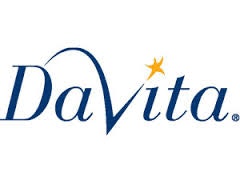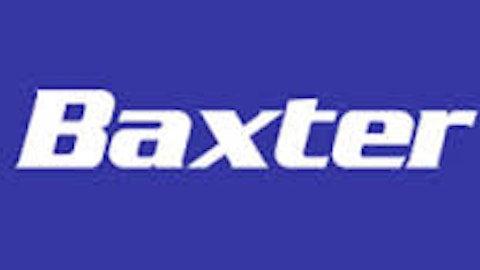Obesity rates are soaring in the United States. According to the American Heart Association, 155 million adults and 24 million children are overweight or obese. Type 2 diabetes is being diagnosed at record rates. Some 61% of overweight children have at least one risk factor for heart disease. And fewer than 25% of Americans eat a healthy diet and exercise regularly.

Both companies operate kidney dialysis centers used to treat diabetes and similar obesity-linked diseases. What’s more, the two operate in a virtual duopoly, accounting for 70% of the U.S. dialysis market. This offers both companies tremendous scale advantages over smaller competitors.
Despite their tremendous advantage in the domestic industry, both companies are heavily reliant on Medicare for their revenue. The market went cold on the two when it was announced that dialysis providers would receive a lower reimbursement rate from Medicare.
Although pricing is a major concern, investors have overreacted to the data point. Demand for dialysis is growing at a steady clip, with the industry likely to grow 5% per year for the next several years. Moreover, DaVita HealthCare Partners Inc (NYSE:DVA) and Fresenius Medical Care AG & Co. (ADR) (NYSE:FMS) have traditionally grown at a faster rate than the industry — both achieving double-digit sales growth over the last decade despite the industry growing at only a mid-single-digit pace. Both companies should be able to continue stealing market share from smaller competitors until hardly any other U.S. providers exist.
The only real competition is overseas. Baxter International Inc. (NYSE:BAX) recently added Gambro, a Swedish dialysis provider, to its portfolio of dialysis centers. Unlike most U.S. dialysis competitors, Baxter has the size and capital to compete with DaVita HealthCare Partners Inc (NYSE:DVA) and Fresenius Medical Care AG & Co. (ADR) (NYSE:FMS). As a result, neither company has been able to establish a significant presence overseas.
However, there is a sign of hope for DaVita HealthCare Partners Inc (NYSE:DVA) and Fresenius Medical Care AG & Co. (ADR) (NYSE:FMS). Baxter International Inc. (NYSE:BAX) is not dedicated to the dialysis market; Gambro is simply a part of a business that competes in various markets to treat a wide range of diseases. Although Baxter’s acquisition of Gambro indicates the company’s intention to expand its presence in the dialysis industry, the company’s growth prospects look dim.
Even if Baxter can make it difficult for DaVita HealthCare Partners Inc (NYSE:DVA) and Fresenius Medical Care AG & Co. (ADR) (NYSE:FMS) to enter some international markets, it is unlikely to make a significant dent in the U.S. business. Therefore, investors can rest easy knowing that DaVita and Fresenius will be growing for years to come.
Investment merits
The current trading multiples reflect the disparity in growth prospects for Baxter and its dialysis competitors; Baxter trades at 17 times earnings, while Fresenius trades at 23 times and DaVita at 27 times.
Before you jump up and down to complain about these “speculative growth” stocks, take a look at Berkshire Hathaway’s portfolio; the insurance conglomerate known for investing in great companies at fair prices recently increased its stake in DaVita near the current market price.
Moreover, both companies trade at reasonable multiples of EBITDA. DaVita trades at 8 times EBITDA and Fresenius at 9 times EBITDA. If you assume that each company can eventually turn 50% of EBITDA into earnings — a safe assumption for most companies — DaVita trades at a much more attractive 16 times no-growth earnings and Fresenius at 18 times no-growth earnings. Broken out this way, both stocks look a lot more attractive.
Bottom line
Lower Medicare reimbursement rates will definitely impair DaVita’s and Fresenius’ profitability, but the long-term economics of both businesses are still secure. It is usually a safe bet to buy two companies that will dominate an industry with a long runway for growth — DaVita and Fresenius fit that profile.
Ted Cooper has no position in any stocks mentioned. The Motley Fool has no position in any of the stocks mentioned.
The article How to Profit From Obesity originally appeared on Fool.com and is written by Ted Cooper.
Ted is a member of The Motley Fool Blog Network — entries represent the personal opinion of the blogger and are not formally edited.
Copyright © 1995 – 2013 The Motley Fool, LLC. All rights reserved. The Motley Fool has a disclosure policy.





